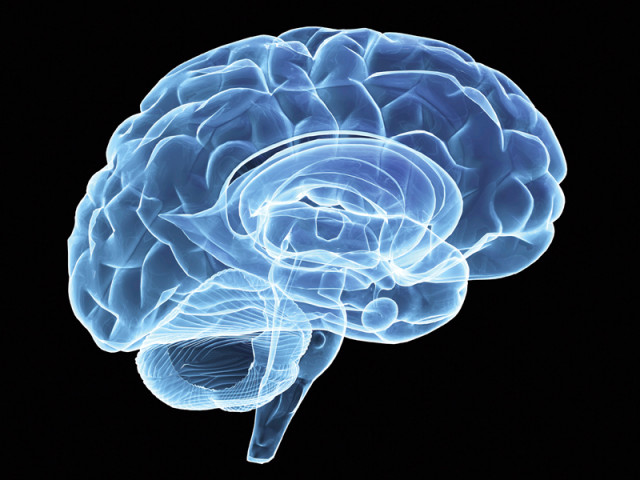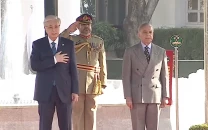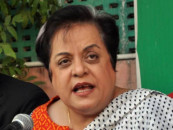Psychiatric rehabilitation: A wellness model
The Recovery House is a one-of-a-kind rehabilitation centre that helps psychiatric patients reintegrate into society

Shaheen Ahmed, the founder and president of the first rehabilitation institution for mental illnesses, Caravan of Life Pakistan Trust, and a pioneer in psychological rehabilitation in Pakistan, and her brother, Khusro Karamat Elley, have played a key role in changing the way mental healthcare is dealt with in the country. The duo realised the lack of awareness about mental illnesses in Pakistan when two of their siblings were diagnosed with serious mental health disorders in the early ’60s. After the diagnosis in Britain, the family looked into treatment options in Pakistan but discovered that the limited options, which involved medication and electroconvulsive or electroshock therapy, were less than satisfactory. As a result, they came up with the idea of setting up Caravan of Life Pakistan Trust.

One of the bedrooms at the facility which helps patients feel at home. PHOTOS : ATHAR KHAN

A sitting arrangement in the garden where patients have their evening tea. PHOTOS : ATHAR KHAN
Previously, the Caravan of Life USA — a sister organisation based in the United States — also trained Karawan-e-Hayat, which is a free-of-cost mental health facility in Pakistan, says Ahmed. But after they started inducting patients with substance abuse, Ahmad felt it was important to revert to the original plan of a centre purely for psychiatric patients which led to the formation of TRH in 2009.
In Pakistan, the focus is solely on medication, which is only one part of the treatment. For patients suffering from severe psychiatric disorders, whose daily lives are also impacted due to impaired functionality, rehabilitation is the only solution, says Ahmed. Based in the United States for the last 47 years, Ahmed has been actively involved in the field of mental health as a volunteer and has developed a comprehensive understanding of the different models of care, especially psychiatric rehabilitation. She has served as a member of several health boards and is also a member of the international committee of Psychiatric Rehabilitation Association. It is through these connections that Ahmad imported the necessary expertise and assembled a team of experts to help her set up TRH in Pakistan. Experts are also invited regularly to the facility, including Dr Veronica Carey, an assistant clinical professor and associate director of the Saturday Scholars Programme at the Behavioral Health Counseling Department at Drexel University, United States, who visited the facility earlier this month. “It has been an opportunity to continue the dialogue, introduce new concepts, assist with the correct language and work towards incorporating rehabilitation as part of the behavioural health framework,” she says adding that rehabilitation is not meant to substitute psychiatrists and medication, but complement it.

A display of crafts at The Recovery Home where patients indulge in a series of activities. PHOTOS : ATHAR KHAN
The Recovery House has a client-centered approach to rehabilitation which aims at empowering patients (referred to as clients at the facility) in a safe and secure environment and focusing on their wellness, independence and mobility, explains Dr Carey. The facility can accommodate 15 patients in the ‘residential programme’ and 15 more in the ‘day treatment programme’, which includes activities such as sound therapy, theatre, cooking, gardening, money management, memory enhancement exercises, yoga and meditation, personal grooming, nutrition and visual art. Plans to introduce a ‘visiting home services programme’ are also in the pipeline, says psychologist and director of TRH, Naheed Khan. “We want people to benefit, recover and live a healthy and successful life. Recovery is a journey. It is not an end in itself,” she adds.
Forty-one-year-old Faizan* who suffers from schizoaffective disorder — a psychiatric disorder characterised by abnormal thought processes and deregulated emotions — has come a long way since he came to TRH three years ago. “I suffered from severe aggression and was violent. I had been extremely disturbed for almost five years due to hallucinations and delusions. I [would] smash items at home as I could not control my anger,” he shares, adding that it took a while for his family to realise that he was suffering from a psychiatric disorder. Even though Faizan has spent a few years at rehabilitation units in hospitals in Islamabad, he did not find any of them as accommodating as TRH. “When I came here initially, I was not comfortable but gradually I made friends and it became my second home,” he says. Today, not only is Faizan interning at a Karachi-based firm but is also planning to get married.

People with severe psychiatric disorders can have a relapse since their journey is not linear. “When they understand this and realise that they have an illness that can be treated, they are ready to enroll in a psychiatric rehabilitation programme and begin their journey to recovery,” says Khan. Some can recover within three months while others may take either a year or more. Around 50 to 60 percent patients with serious psychiatric disorders can recover and lead a normal life if there is more awareness about rehabilitation in the country, says Dr Uzma Ambreen, a psychiatrist and clinical director at TRH. Although there are rehabilitation units in many psychiatric hospitals, they mainly facilitate people with substance abuse, she explains. The situation can improve if inpatient rehabilitation units are set up purely for patients with psychiatric disorders.
TRH has also been recognised by the United States Psychiatric Rehabilitation Association. “We want TRH to be [a facility that can also train others] in South Asia. People from the region [should] come here for education and training,” says Dr Carey.

*Name of the patient has been change to protect privacy.
With additional input by Amna R Ali.
Facilities across Pakistan that offer psychiatric treatment:
Karachi
Karachi Psychiatric Hospital:
92-21-111760760
Karawan-e-Hayat:
92-21- 3586 3060
The Recovery House:
021-345-46364
Islamabad
Pakistan Institute of Medical Science: 9261170-89
Shifa International Hospital:
92- 51- 846- 4646
National Engineering and Scientific Commission:
92-51-90742466
Peshawar
Khyber Teaching Hospital:
9216340-47
Lady Reading Hospital:
9211430-9
Hayatabad Medical Complex:
091- 9217188
Lahore
Centre for Advanced Medicine:
92-42-3579 0123
Ishrat Ansari works at The Express Tribune Karachi desk. She tweets @Ishrat_ansari
Published in The Express Tribune, Sunday Magazine, December 21st, 2014.



















COMMENTS
Comments are moderated and generally will be posted if they are on-topic and not abusive.
For more information, please see our Comments FAQ